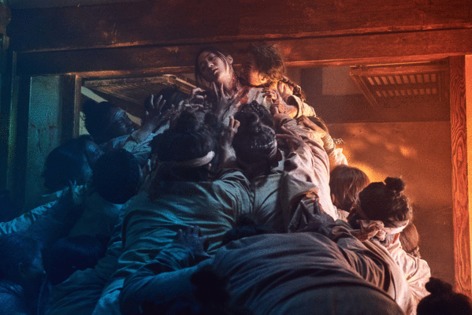Zombies are everywhere in South Korea feeding on fears and anxieties

He has a supply of canned and dried food, and has seen enough zombie movies to realize his best chance of survival is to hop on a bicycle rather than get into a car. Zombies have a thing for cars, and then there’s the inevitable gridlock. When the time comes, though, he reckons it’d be best to relent and let the zombies feast on him so he can join their ragged, swift masses.
Kim has his reasons. A cultural studies scholar and critic who became fascinated with zombies when he was a college student confused about his future in a cutthroat society, he related far more to the hordes of undead clamoring at the door than the living fighting to shut them out.
Lately, it seems zombies are everywhere in South Korea.
They’ve taken over high-speed trains, swept through densely packed apartment complexes and risen in the demilitarized zone between the Koreas. They’ve emerged in 15th- and 16th-century Korean history, cropped up in K-pop songs and videos, and peppered vitriolic barbs exchanged by politicians. There have been accounts of a private detective, a runaway girl, a king and a grandpa, each with the unmistakable ashen skin hue, unfocused pupils and insatiable hunger for human flesh.
Eschewed just a few years ago as a grotesque foreign phenomenon, zombies have since proliferated in the Korean imagination, producing a flood of movies, dramas, novels and even academic works on and about the undead.In the midst of a viral pandemic that at times feels uncannily like a zombie apocalypse, South Korea’s walking dead have also struck a nerve with international audiences. The zombie flick #Alive topped Netflix’s worldwide streaming last fall and entered the top 10 in 90 countries. Hollywood, which popularized the modern cinematic zombie, is planning a remake of “Train to Busan,” the 2016 blockbuster that instigated South Korea’s zombie craze. The government has taken to promoting them as a soft power cultural export — dubbing them “K-Zombies.”
Zombies sell and zombies travel. It’s a huge shift from seven years ago when Kim decided to focus his master’s thesis on zombies and the social anxieties they reflect. His advisers tried to talk him out of it, saying zombies were a niche genre with little appeal or relevance. But seeing the gaping inequalities, rat-race competition and distrust in government and institutions all around him, Kim bet zombies would one day slip into the South Korean psyche.
“Whenever the world is unstable and people are anxious, and there’s a prevalent sense that social collapse is near, zombies surge in popularity,” he said. “It’s a creature that feeds on the anxieties and fears of any given society and morphs accordingly.”
With origins in voodooism in colonial Haiti, zombies have for decades served as a social allegory providing biting (ahem) commentary in the U.S. Some of the earliest American zombie flicks by George Romero were charged with the racial tensions of the 1960s or the mindless consumerism of the 1970s.
